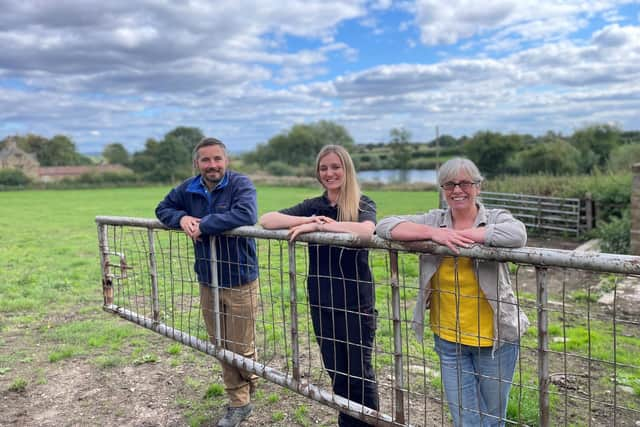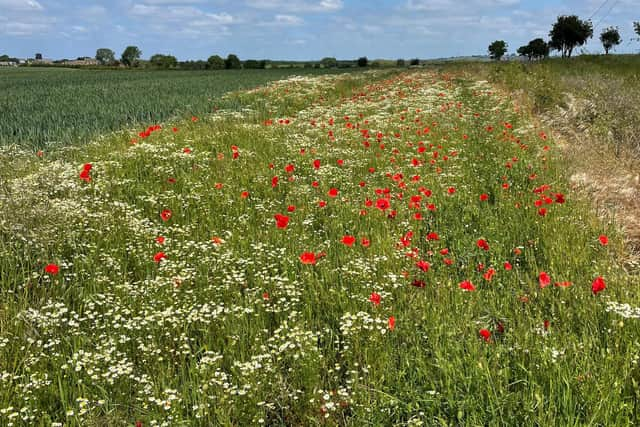South Yorkshire farmers form cluster to help plan for future in uncertain times
The “Dearne Valley Farmers” cluster group is made up of more than 30 farmers covering more than 6,000 hectares and is a forum where farmers can come together to share ideas and knowledge.
They are also places where farmers can learn about funding opportunities and launch projects that help tackle local environmental issues.
Advertisement
Hide AdAdvertisement
Hide AdPriorities for the Barnsley group include soil health, net zero and nature-friendly, sustainable farming.


The group is working collaboratively with the wider nature conservation community to promote a more ambitious and cohesive approach to nature recovery across the landscape.
For example, the group has received funding from Yorkshire Water’s biodiversity enhancement programme, enabling it to run regular workshops as well as offering each member a bespoke stewardship advice visit and free soil sampling.
The group is co-facilitated by Chris Harrap of Tyers Hall Farm in Ardsley, Barnsley and adviser Ann Hanson and it is also being run in partnership with the Don Catchment Rivers Trust.
Advertisement
Hide AdAdvertisement
Hide AdMr Harrap said: “As a network of farmers working together at the landscape-scale, we are well placed to share knowledge and figure out together how to be more resilient, whether that is reducing inputs at a time of rising costs, or focusing on soil health and environmental incomes, at a time when the climate is making farming more challenging.


"Working as a group also gives us a stronger voice on issues which are important to us, from rural broadband to the role of soil in carbon sequestration.”
At Tyers Hall they are looking at a sustainable, circular approach to the whole farm.
That could involve using farmyard manure or digestate instead of synthetic fertiliser, integrating herbal leys into the arable rotation to improve soil health and leaving enough space and resources for the local wildlife.
Advertisement
Hide AdAdvertisement
Hide AdThe farm is also doubling the amount of land dedicated to wildlife habitats, including woodland, ponds, hedgerow and field margins.
Mr Harrap admits that profitability is also a factor in the approach at Tyers Hall taking into consideration the way that government payments are now being allocated.
He said: “Whilst we are keen to improve biodiversity; these changes are also motivated by profitability – there are some areas of every farm which are relatively unproductive and often environmental schemes like Countryside Stewardship can improve your bottom line.
“Last year, we wondered what the farmers around us were considering as ways to adapt their businesses for life after farm subsidies in the EU. We found plenty of farmers across Barnsley are also thinking similar things, so we decided to try to bring people together to find solutions which work for
all farms across the Dearne catchment.
Advertisement
Hide AdAdvertisement
Hide Ad"We’re now seeing some group members moving to more regenerative practices, establishing agroforestry fields, trialling more diverse crops such as heritage wheats, companion cropping to reduce fertiliser inputs, and managing their grazing differently.”
Last year, the group obtained Natural England funding enabling it to run a “Hedges and Edges” mini-project, which focused on promoting field boundary management and saw farmers install seven new barn owl boxes.
This year it has received Yorkshire Regional Flood and Coastal Committee funding to support farmers to reduce grassland soil compaction by setting up an aerator machinery sharing scheme. Other events planned for 2023 include organic conversion and mob grazing.
